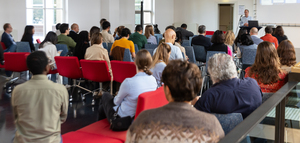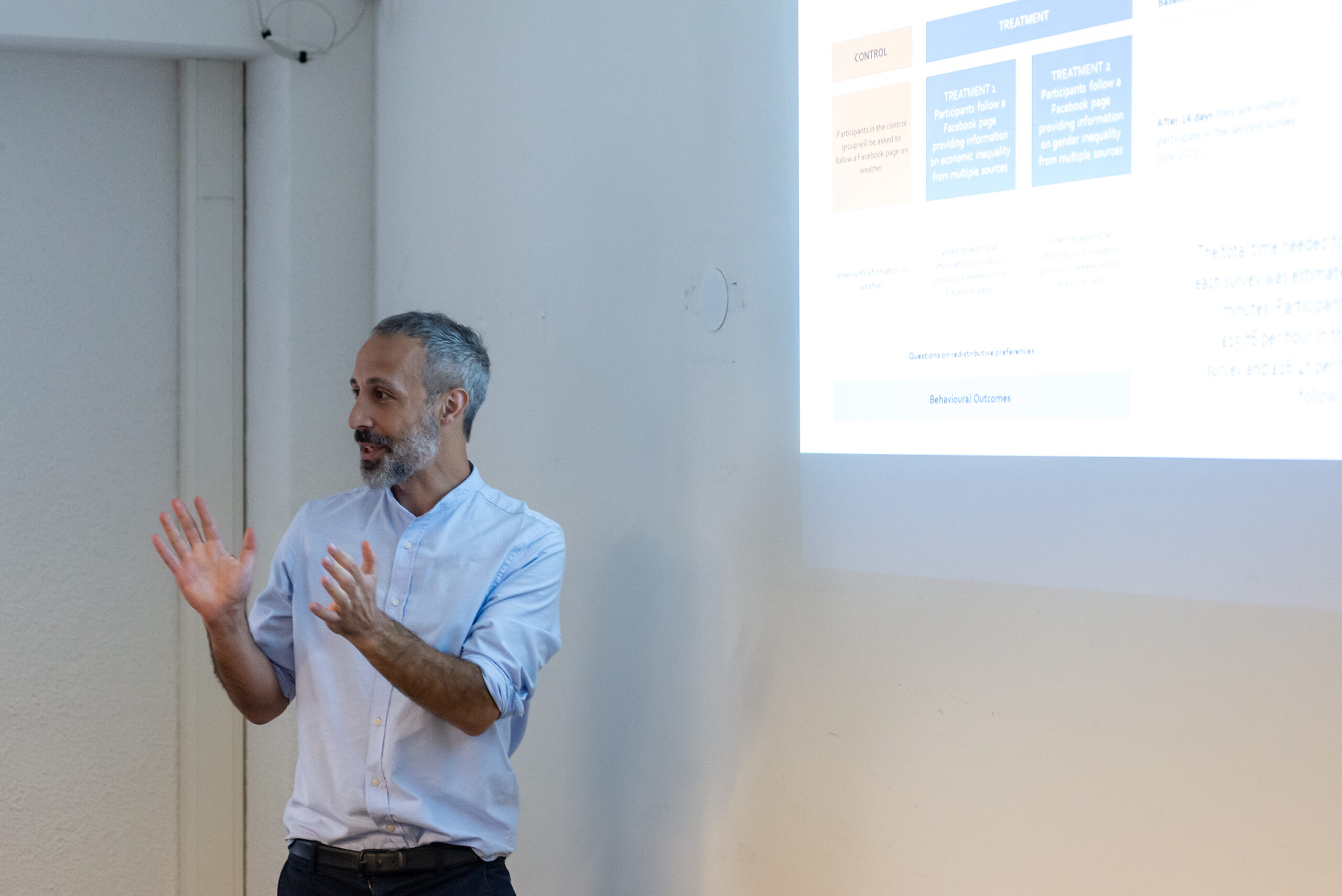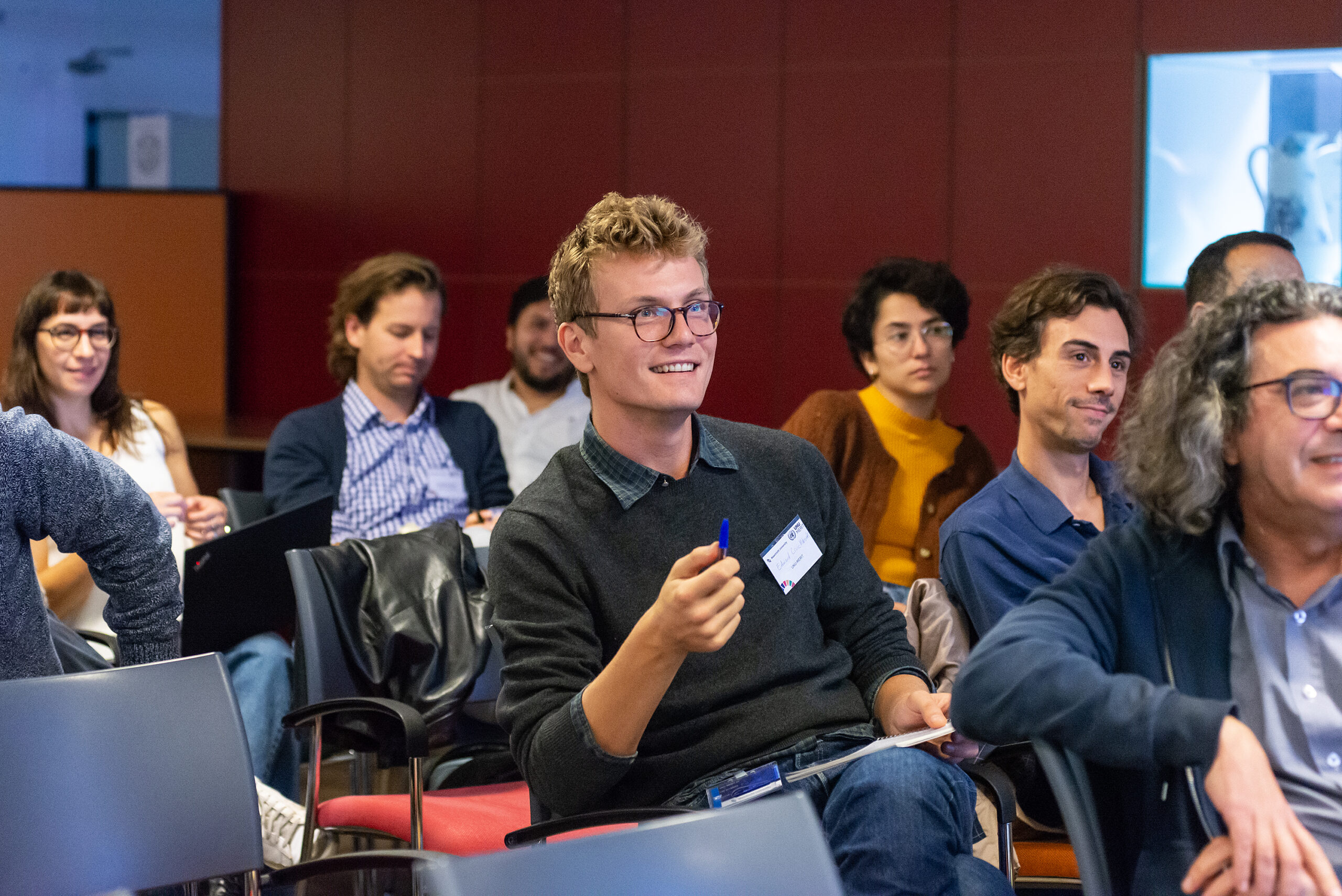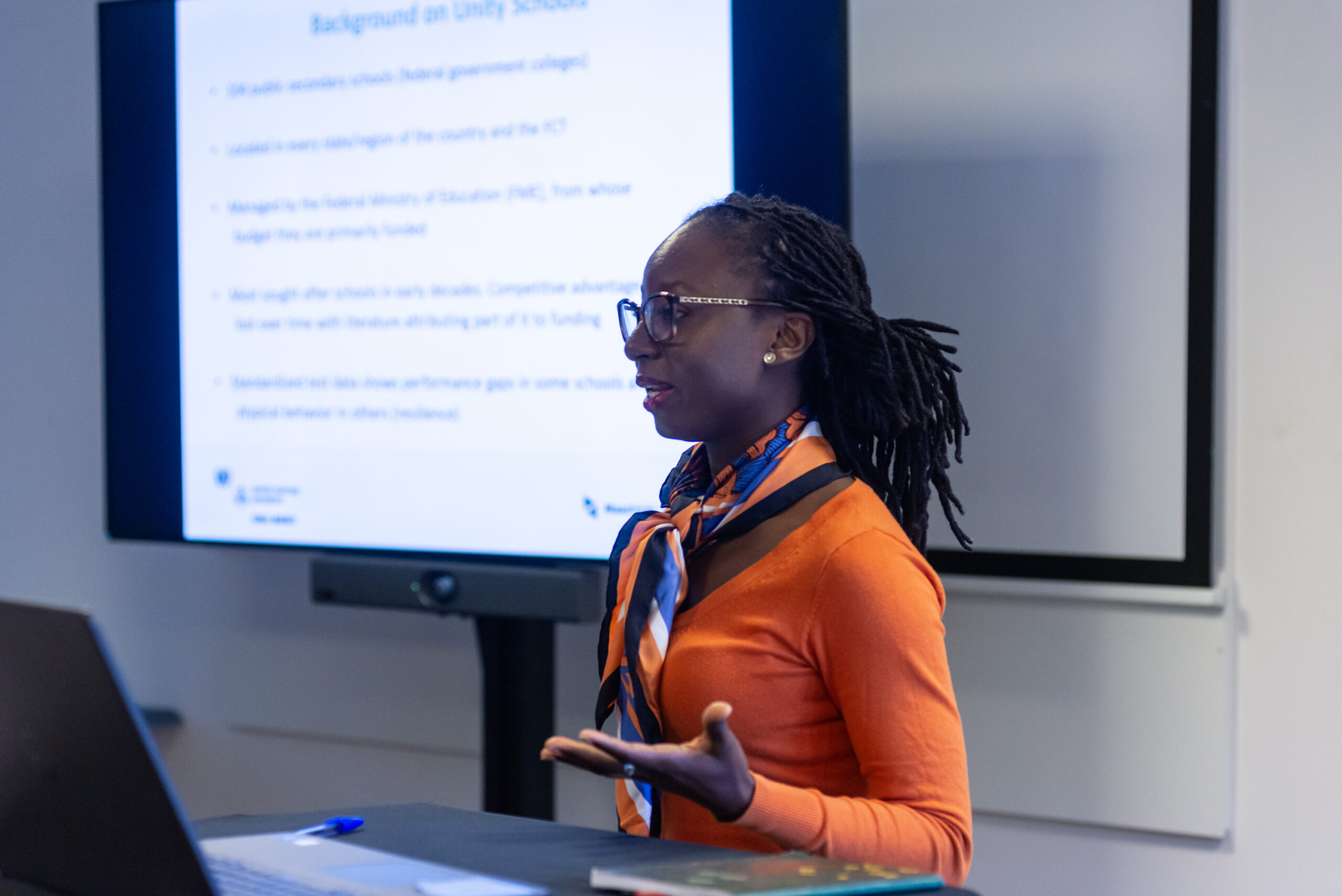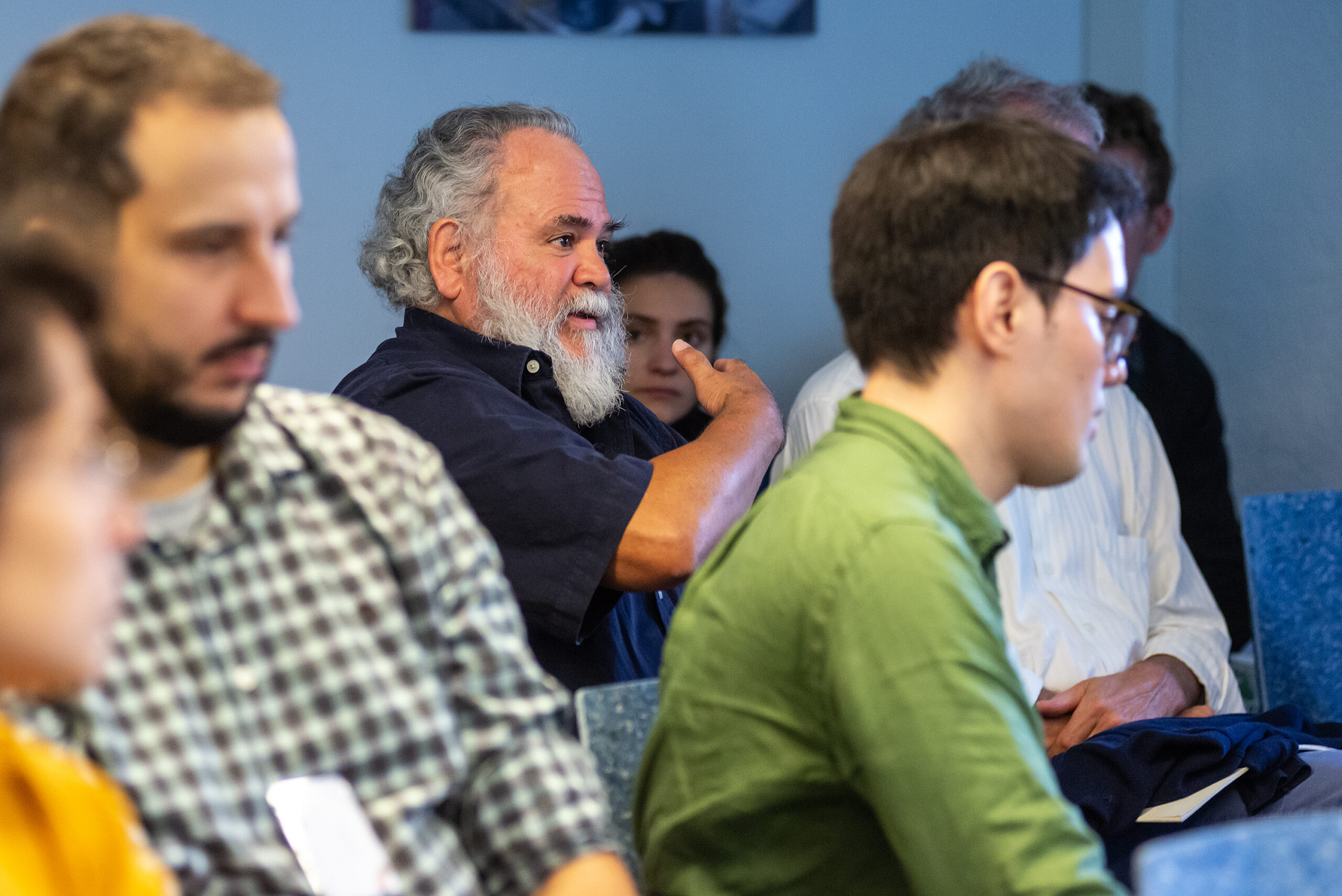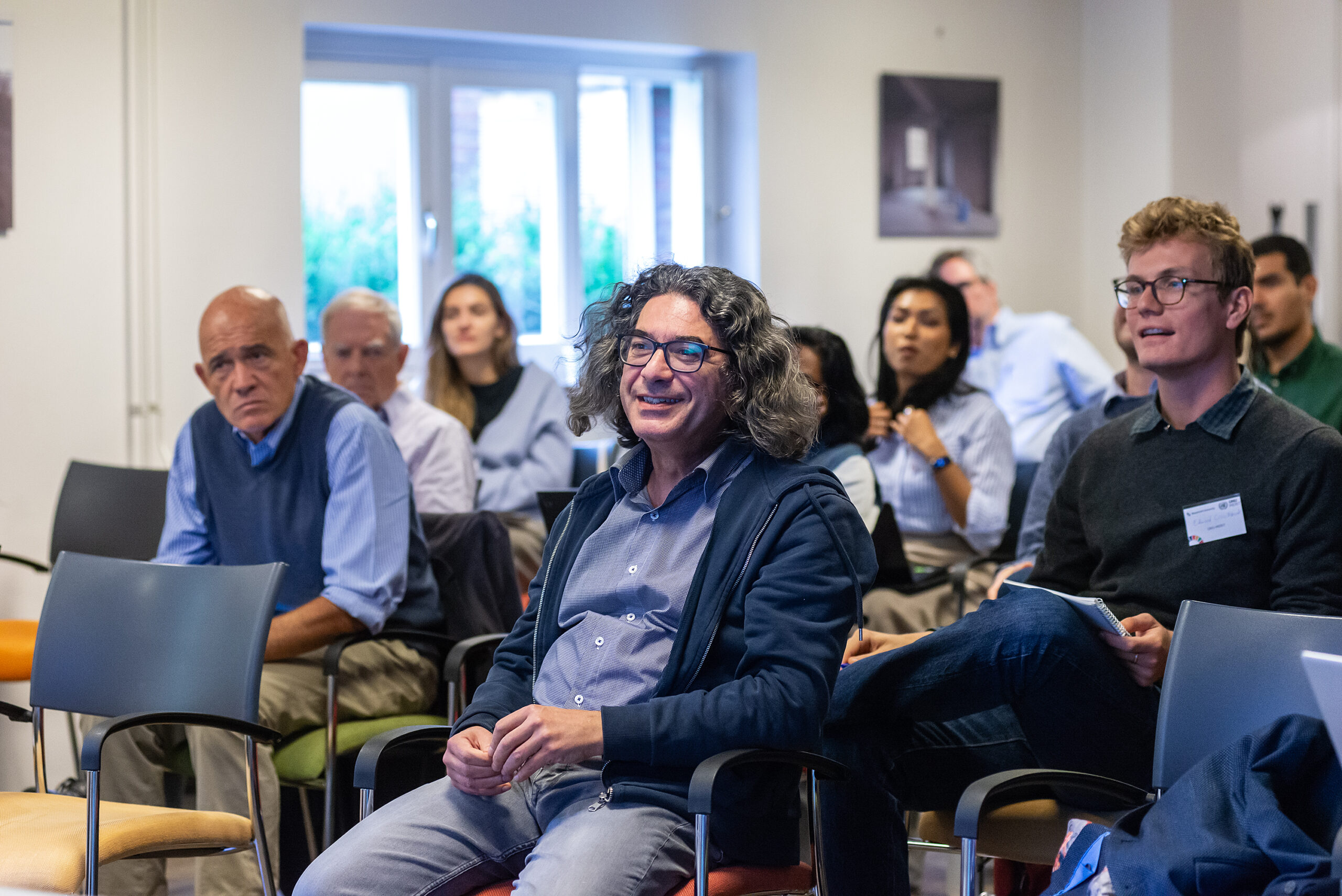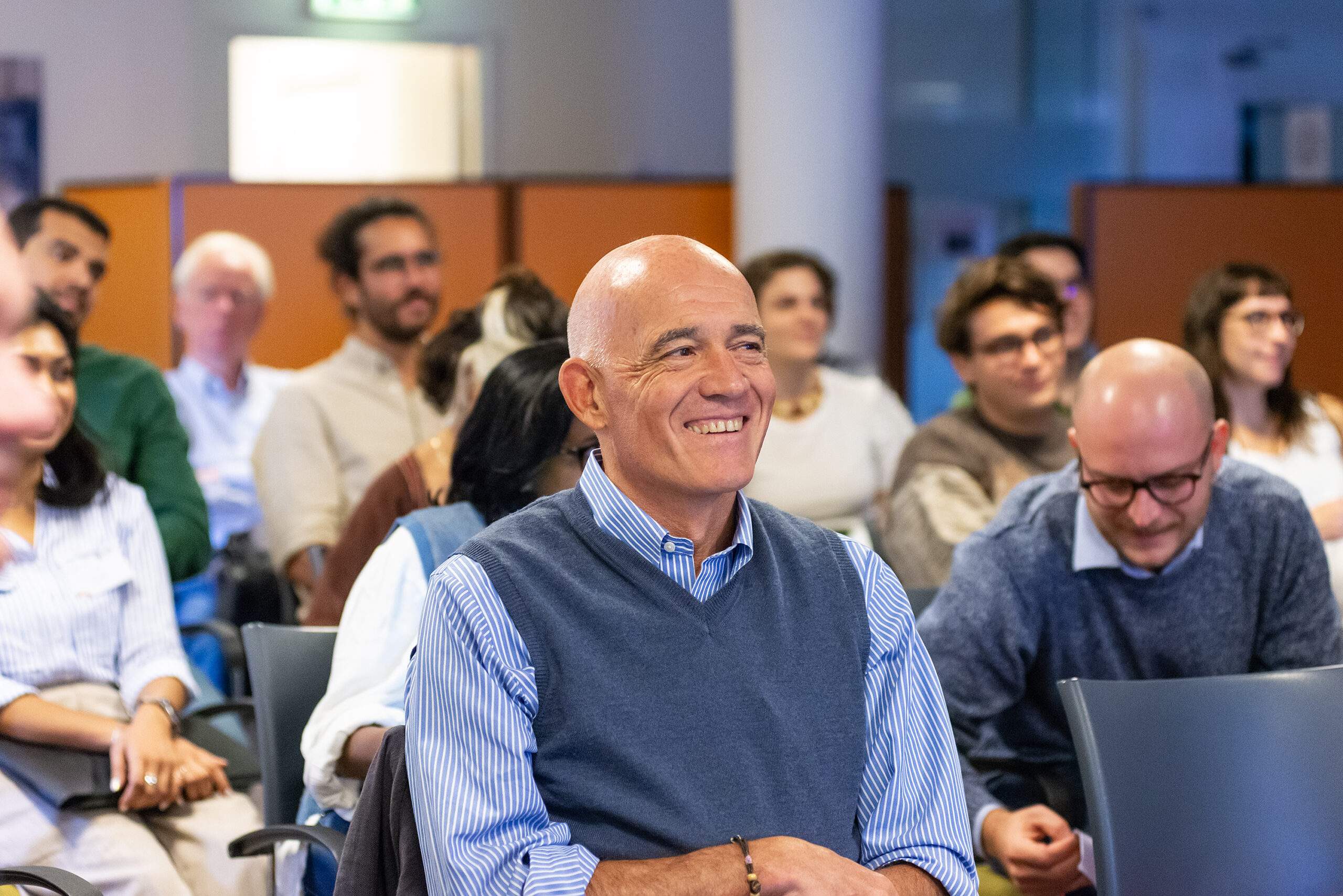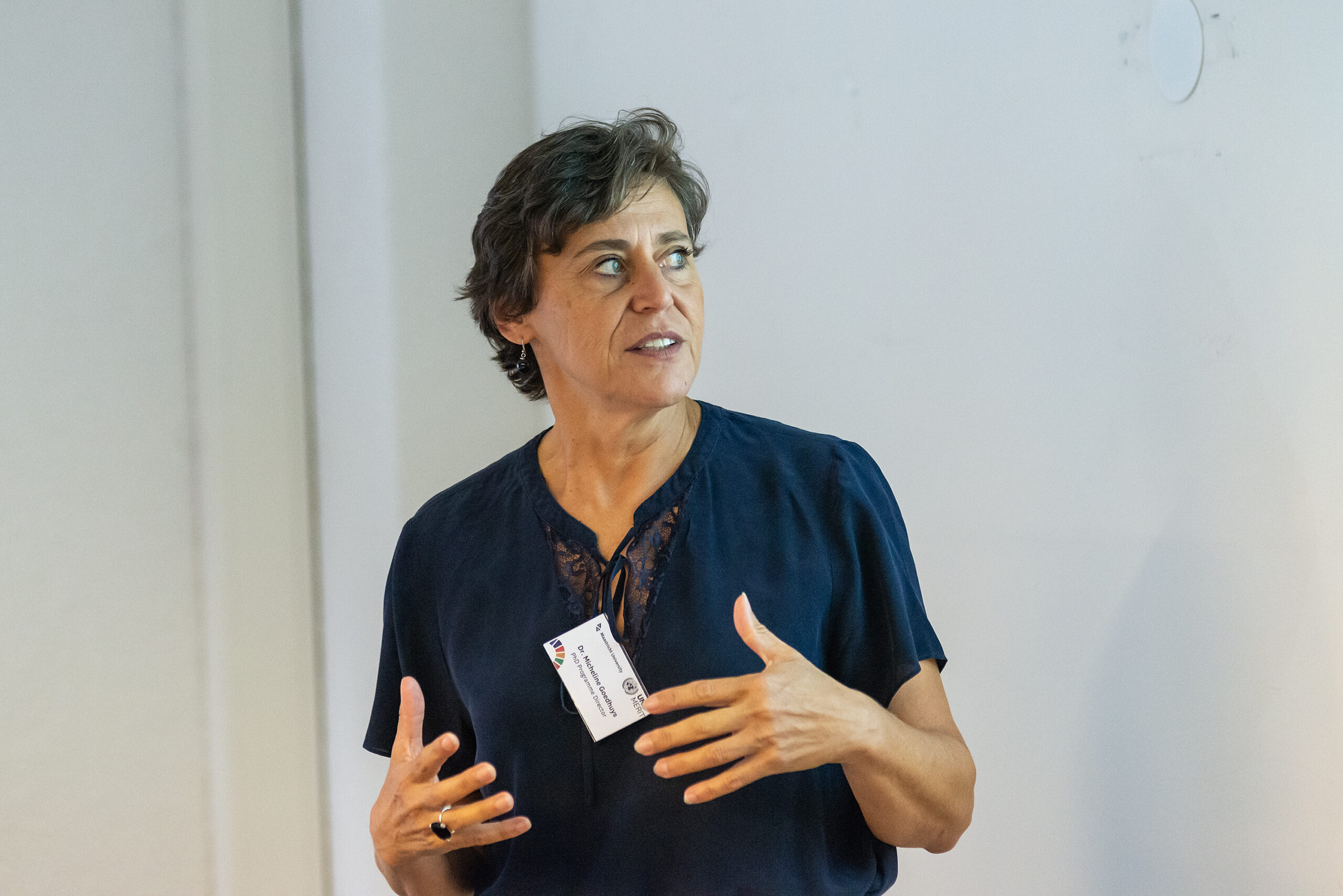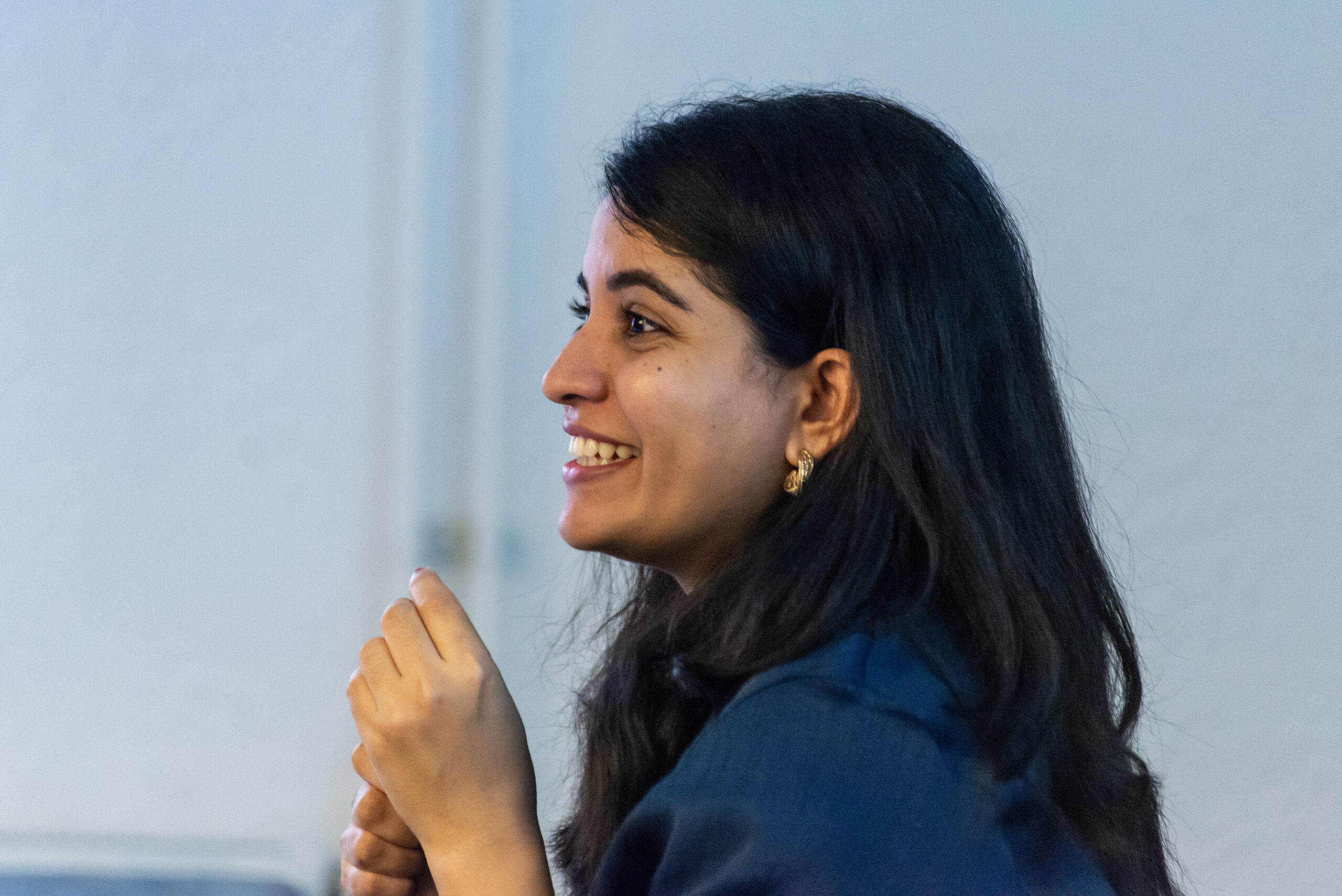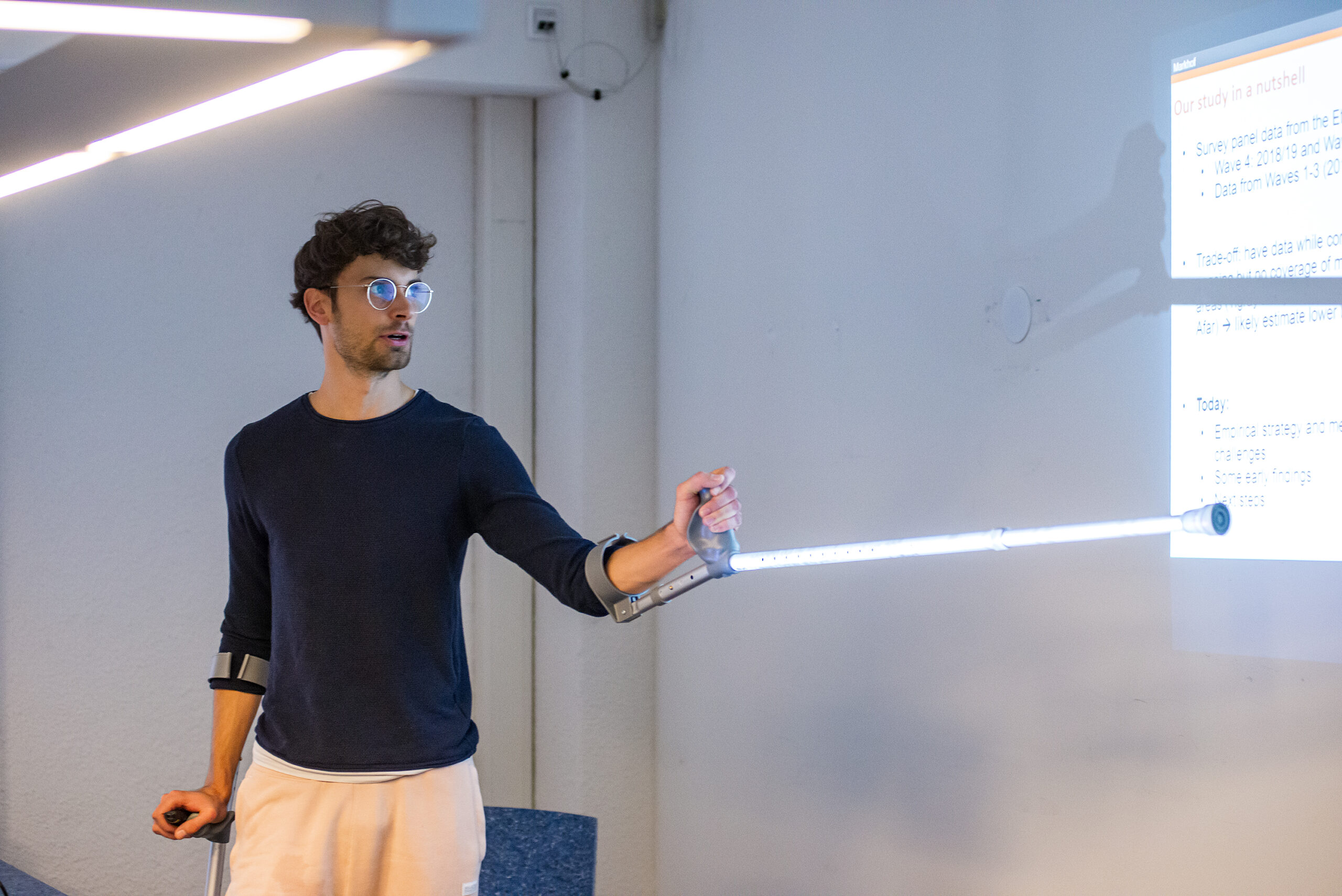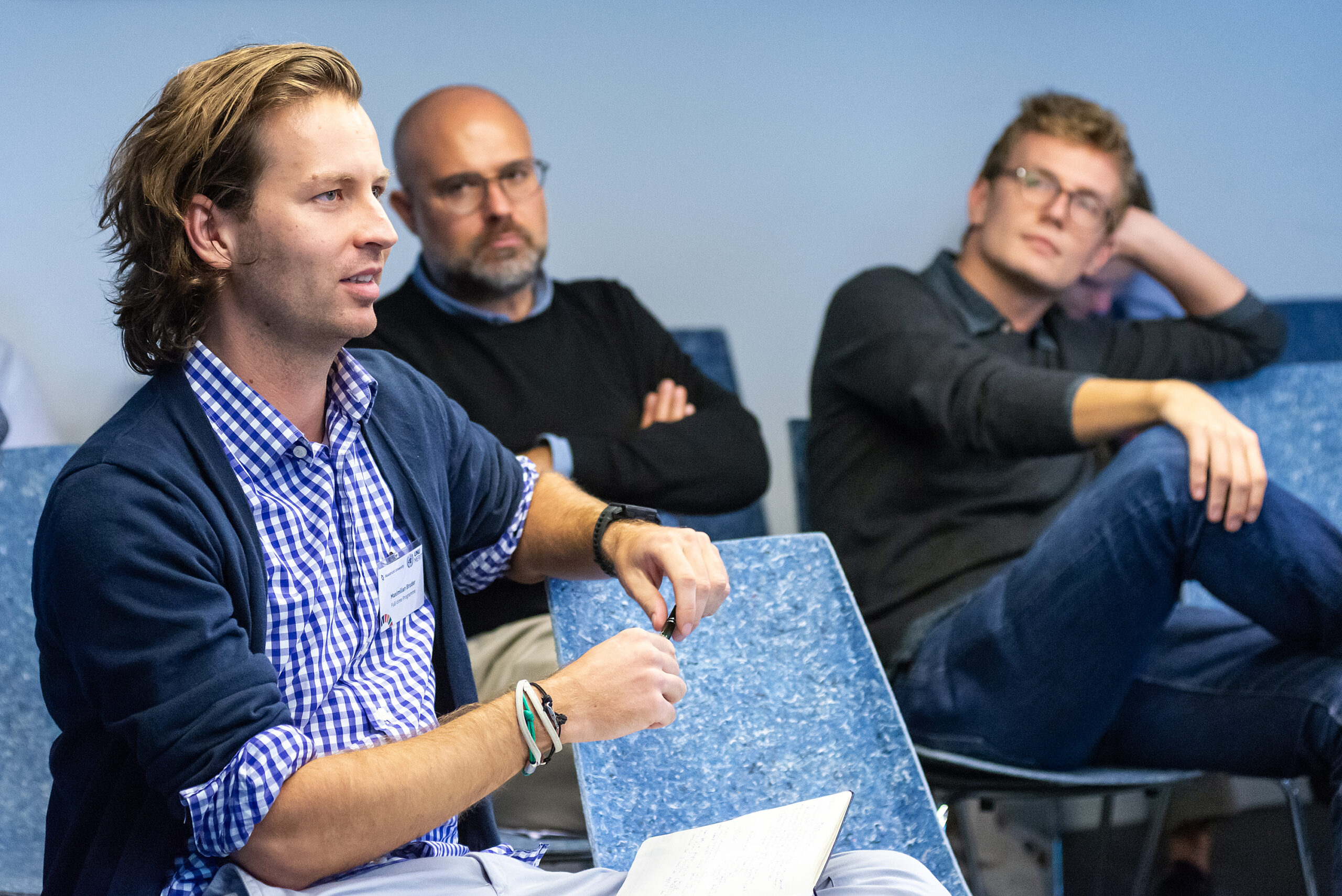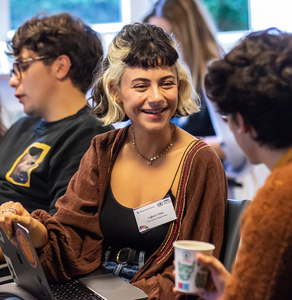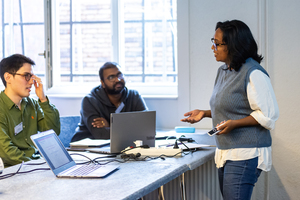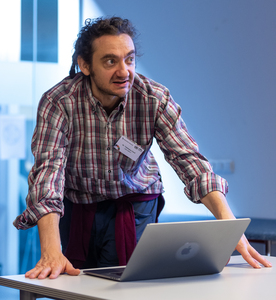On 28-29 September, UNU-MERIT held its annual Internal Conference — an intensive two-day gathering that convened all of our PhD fellows (both full-time and dual career), researchers and professors for an in-person research exchange. During this much-anticipated event, our academic community members showcased their scientific endeavours to their peers, received valuable feedback, gained new perspectives and inspiration from two esteemed external keynote speakers, and enjoyed a social evening out together.
Below, we share some of our community’s reflections on their research motivations and their main takeaways from these interaction-packed two days:
The core motivation behind my research is being able to observe factors that influence colleagues’ work closely, which allows me to question the pros and cons of the current incentives we have as researchers. I aim to investigate the existing policies and mechanisms, particularly in science funding, to uncover the barriers and opportunities that impact researchers’ ability to follow their curiosity and address vital societal challenges. My ultimate aim is to gather evidence that can help us refine science policy, striving for a more inclusive, equal, and practical research environment.
Furthermore, I see the internal conference as a platform which not only makes future collaborations possible but also keeps us updated about ongoing research within the institute.
Yagmur Yildiz, PhD Fellow
What I value most are the interactions, discussions and debates, both within the conference sessions and during the breaks. My highlight of the conference was to see our PhD students presenting their research. They are our future, what we contribute to the world, our ‘PhD army’, a talented group of intellectual minds that we raise to solve the challenges ahead of us.
As for the change I aim to make with my work, driving positive development isn’t a walk in the park. It requires time, determination, patience and the support of several stakeholders, often with competing interests. As researchers, what we can hope is to solve pieces of the puzzle that can pave the way for meaningful change.
Nanditha Mathew, Researcher
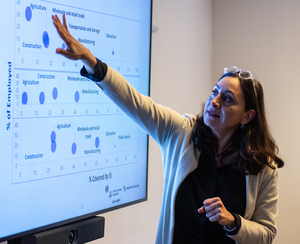
Zina Nimeh compares social insurance policies in Egypt, Jordan and Tunisia.
My key takeaway is the reaffirmation that we are engaged in truly exciting and impactful work. The discussions and insights shared during the conference demonstrated that our efforts in the fields that we are engaged in – public policy, economics of innovation, governance and development – are not only intellectually stimulating but also possess the potential to effect real change. It was inspiring to see the dedication and innovation within our community, especially among the PhD fellows and the young researchers, reinforcing our collective commitment to making a meaningful difference.
My research is about social protection and social policy, particularly in the context of uncovering the gap between social insurance laws and their implementation. I believe they play a crucial role in improving people’s lives and promoting social justice. The work that we do is our way of making a positive impact in a rapidly changing and sometimes challenging and uncertain world. My motivation for this research is grounded in the belief that by understanding social protection and social policy better, we can contribute to creating fairer and more inclusive societies.
Zina Nimeh, Associate Professor
I find it truly fascinating to be able to engage with excellent researchers at our institute on key research questions that contribute to the advance of our knowledge and to practice.
With my work, I aim to improve our understanding of how technical change and innovation can benefit societies, in more equitable and sustainable ways than they do now – including understanding their negative impact in both the short and long term. My hope is that our findings help policy makers, business and civil society to shape innovation activities.
Tommaso Ciarli, Researcher
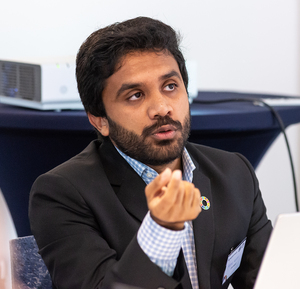
Ahmed Hussain explaining the virtuous loop of quality of government and institutional trust in OECD countries.
Graduating from the MPP programme and immediately stepping into presenting a paper, co-authored with Prof. Dr. Jo Ritzen, at the Internal Conference was a truly rewarding experience. I presented our recent UNU-MERIT Working Paper Series publication on the relationship between trust in government and the quality of government. This research is fundamental to understanding and shaping societies that are stable, prosperous, equitable and capable of addressing the varied challenges faced by their citizens. Engaging with the UNU-MERIT PhD fellows and senior researchers was not only an enlightening experience but also a valuable opportunity to garner insightful suggestions and guidance, paving the way to enrich this research further. More than just an opportunity for networking and expanding knowledge through invaluable constructive feedback, the entire experience offered a holistic learning journey, significantly contributing to both my academic and professional development.
Ahmed Hussain, MPP Graduate (2022-23 cohort)
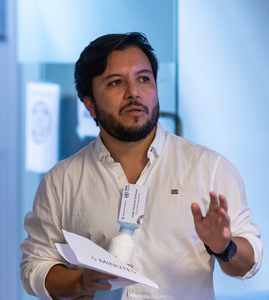
Jorge Valverde presents his work on the energy transition and critical minerals in the context of Latin America.
There are two main drivers that motivate me to pursue my research agenda (as a team member of UNU-MERIT’s UNESCO Chair on Science, Technology and Innovation for Sustainable Development for Latin America). First, to show how different strands of literature, such as critical minerals, mining competitiveness and green windows of opportunity, are connected, which has different implications depending on the observation angle. In this regard, my co-authors and I are contributing to developing a theoretical and empirical framework to analyze these topics. Second, to provide a practical tool to assess the minerals’ criticality and the mining competitiveness of countries – since today these assessments use excessive resources and time. Therefore, we are proposing an efficient methodology to get a first screening on the state of the art of criticality and competitiveness.
My key lessons from the conference are the relevant comments I received on how to present and manipulate the data to make the annual results comparable, and how to present the theoretical framework in a more comprehensive way.
Jorge Valverde, PhD Fellow
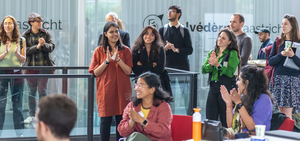
The organisers of the conference, Stefanie Roost and Manisha Mukherjee, receive a well-deserved round of applause.
Curious about UNU-MERIT’s PhD programme on Innovation, Economics, Governance and Sustainable Development?
Keep an eye on our website, as we’ll soon be opening a call for applications on 1 November, with a deadline of 15 February 2024! You can already sign up for the first online open session to learn more about the programme, which will take place on 6 November – find more details here.
ANY COMMENTS?
NOTA BENE
The opinions expressed here do not necessarily reflect the views of UNU.
MEDIA CREDITS
H. Pijpers / UNU-MERIT


